Click here to view the current list of FYS courses and their corresponding descriptions.
 Rachel Wilson, Ph.D.
Rachel Wilson, Ph.D.
Associate Professor
Chair of Business & Economics Department
Economics and Society — ECON
An issue-oriented practical guide to introductory economics. Through examination of contemporary social issues and problems, a framework of economic analysis is developed. Topics such as world poverty and development, discrimination, pollution, monopoly power, unemployment, international trade, taxes, global competition, and social security are covered. Upon completion of the course, students will be able to view current events with an economic understanding of the issues involved.
 Layla Besson, Ph.D.
Layla Besson, Ph.D.
Assistant Professor of Practice in Education
Neurodivergent Success in a Neurotypical World — EDUC
This course is intended for students who consider themselves to be neurodivergent, expect to work with neurodivergent populations, and/or have other personal interests in the neurodiversity movement. Neurodivergent populations typically include those on the autism spectrum as well as those with ADHD, dyslexia, Tourette’s syndrome, and other exceptional ways of thinking and learning. The neurodiversity movement takes a strength-based approach toward achieving personal, educational, and employment success. In this course, students will learn about the impacts of being neurodivergent, social and cultural issues related to neurodivergence, research studies about neurodiversity, advocacy/accommodation options to support needs and strengths, and universal design for school and work.
 Cathy L. Pederson, Ph.D.
Cathy L. Pederson, Ph.D.
Professor of Biology
Elizabeth E. Powelson Endowed Chair in Biology
Director of Health Science Program
Power of Addiction — BIOL
Drug addiction is a powerful force in the life of many, regardless of race and socioeconomic status. Why does addiction occur in some drug users and not others? Why are some drugs more addictive? What kind of biological, psychological and social structures might best support a person and their family in the recovery process? This course will examine addiction from many angles, exploring the complexity of this issue in ways not always covered by the popular media.
 Kelly P. Dillon, Ph.D.
Kelly P. Dillon, Ph.D.
Assistant Professor of Communication & Digital Media
#Hashtag Happy: Positive Media Uses & Effects — CMDM
Too often media are blamed for society’s ills – violence learned through video games & R-rated movies, poor mental health from social media, or lagging social and language skills due to extraordinary screen time. However, media allow us to escape, become inspired, learn about ourselves and others, or connect to each other. Students in this section will explore the different types of positive uses and effects of various media and apply their knowledge to their own lives. Topics included are media used for entertainment, transcendence, inspiration, and educational purposes. We will read, apply, and write together in order to better understand the positive impact of media on our lives and society.
 Sunny Jeong, Ph.D.
Sunny Jeong, Ph.D.
Associate Professor of Business & Economics
Cross-Cultural Management — BUSN
In a globalized world characterized by the integration of productions and markets, the increasing flow of people, resources and capital around the world, the ability to work, manage and to communicate in culturally diverse settings has become a key to success in any field. This course provides an intellectual discussions and experiential learning activities to examine issues related to cultural diversity within the work force and the problems inherent in the management of a firm’s activities on an international scale. With the goal of understanding the perspectives of other cultures and resolving possible conflicts, students will have the opportunity to examine the role of perception, their own belief systems, norms and values compared to other cultures, social structures and culture practices in relation to cross-cultural management.
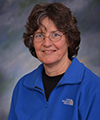 Margaret A. Goodman, Ph.D.
Margaret A. Goodman, Ph.D.
Professor of Biology
Cell and Molecular Biology
Exercised: Fitness, Performance, and Human Evolution — BIOL
We will explore the genetic and physiological basis for human performance, focusing on the structure and function of muscles, nerves, and bones and exploring the energy systems used to fuel activity. Based on this grounding, we’ll consider training protocols and health recommendations, including approaches for critical evaluation of their efficacy and safety.
 Stacy Porter, Ph.D.
Stacy Porter, Ph.D.
Visiting Assistant Professor in Environmental Science
Climate Change in Your Backyard — ESCI
Climate change might seem like a far off, distant threat, but numerous effects of our changing climate are already being felt in communities just like Springfield. For this course, we will explore just some of the ways in which human behavior affects the climate and environment around Wittenberg. Topics will include (sub)urban sprawl and heat islands, health impacts in vulnerable populations, and extreme weather potential from floods, heatwaves, storms, and tornadoes. Can we prevent future consequences of climate change in our city? If not, how do we adapt to the new climate we have created?
 Heather Wright, Ph.D.
Heather Wright, Ph.D.
Associate Professor of Political Science
The Human Rights Project — POLI
Why do we continue to subject one another to abuse, torture, and genocide, when so many human rights declarations and laws exist? Why is there such a difference between our theorizing about rights and our practice of rights, not only abroad but here in the United States? Why do some people abuse human rights while others respect them? Much of the answer lies in cultural practices of representation and in the daunting power of ideology. This FYS takes as a starting point that it is impossible to separate popular culture and politics and assumes that fact and fiction help create each other: film, television and social media not only reproduce but normalize (make acceptable) ideology. How are human rights struggles represented in visual media and text? What is the role of film, literature, public memorials and social media in cultivating or impeding respect for human rights? What part can we play in this ongoing human project? To understand these issues, we will build complex learning modules on Genocide, and Sex Trafficking and Modern Slavery. Within each, we will analyze a variety of texts and employ the tools of different disciplines in our quest for understanding, and ultimately, advocacy!
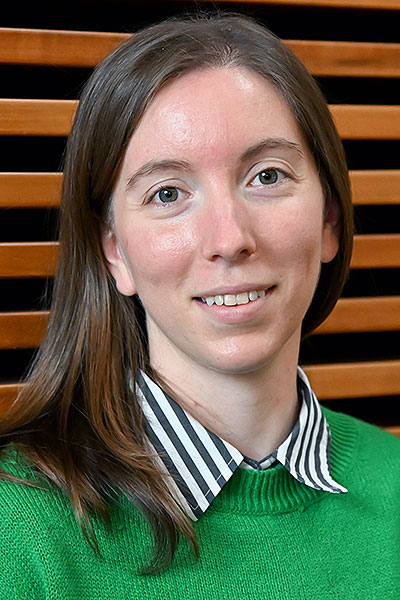 Stephanie Eveland Parrott, Ph.D.
Stephanie Eveland Parrott, Ph.D.
Visiting Assistant Professor of Chemistry
Ir/responsible Stewardship of Science: Chemical Discoveries That Have Shaped Humanity — CHEM
This FYS section will examine how humanity has been shaped by scientific advances, as well as how innovation and discovery have been used for benefit or bereavement of mankind, the planet, and our world’s future. Students will have opportunities to reflect on how their individual lives have been impacted by discoveries of the past and what role they can play in shaping how future discoveries are utilized for or against humanity.
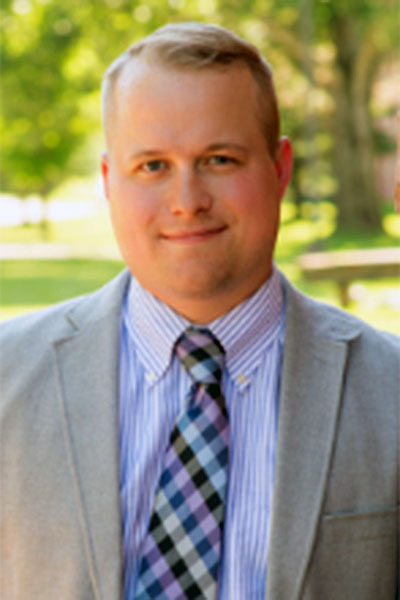 Travis Proctor, Ph.D.
Travis Proctor, Ph.D.
Assistant Professor of Religion
Jesus in History, Film, & Pop Culture — RELI
Jesus of Nazareth: miracle-worker, founder of Christianity, vampire slayer? This course explores the history and mythology behind Jesus of Nazareth, sorting fact from fiction in attempting to understand what we can really know about this Jewish preacher from the Galilee. But the story of Jesus doesn’t just belong in antiquity: his life and death have inspired countless acts of religious devotion and storytelling up until the present day. The course will compare what we can know about the historical Jesus to his portrayal in later fictional accounts, including premodern apocryphal stories and art, modern novels, and contemporary film. Some of our key sources will include the New Testament, ancient “Gnostic” gospels, Jesus vs. Vampires (comic book), Jesus Christ Superstar (film), and Monty Python’s The Life of Brian (film). Emphasis will be placed how the various portrayals of Jesus help us gain insight into cultures both ancient and modern. No experience in Christianity required; students from all religious (and non-religious) backgrounds welcome.
 Mary Jo Zembar, Ph.D.
Mary Jo Zembar, Ph.D.
Professor of Psychology
Childhood: Across the Ages and Around the World — PSYC
What does it mean to be born in the United States in 2022? What if you were born in a different country, or a different year? This course will investigate how children were viewed and treated historically, and in what ways children’s immediate surroundings (e.g., family, schools, and neighborhoods) and indirect surroundings (e.g., parents’ work schedule, national funding priorities) interact with their personal characteristics to impact development. How does living in another culture influence the trajectory of development and in what ways is it similar or different to that of the U.S.? Students will learn how the view of children and childhood has changed over time and how one’s genetic predisposition may interact with different environments to shape child development.
 Nona Moskowitz, Ph.D.
Nona Moskowitz, Ph.D.
Associate Professor of Sociology
Department Chair
Play and Imagination in Cross-Cultural Contexts — SOCI
Children play, of course, but so do adults. How do people create worlds and relationships through play and imagination? This course will examine play and imaginary realms in cross-cultural contexts. Looking both globally and in the U.S., we examine such topics as children's play, language play, and play with dress, selves, and identity. We look at imaginative worlds and fantasy realms, both in the real world and the virtual world of gaming and digital play. This course will be of special interest to students interested in learning about other cultures.
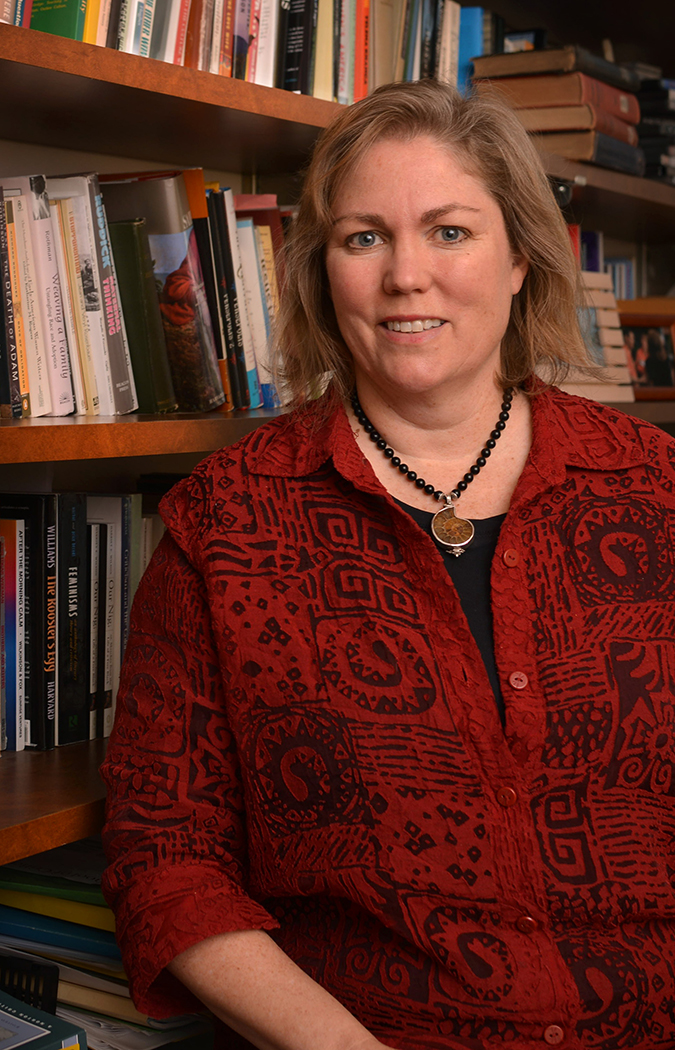 Lori Askeland, Ph.D.
Lori Askeland, Ph.D.
Professor of English
Writing US Free: Captivity & Abolition in the USA — ENGL
Can writing set people free? The United States has a long history of “freedom writers”—people writing declarations, manifestos, narratives, and screeds. These writers both demanded freedom and shaped how "we the people" understand what freedom is. Entangled with that history, of course, is a story of slavery and a variety of forms of forced migrations and mass incarceration. The “land of the free” today imprisons more of its own people than any other country in the world, more than any other civilization in history: 2,500 people currently languish on death row, 2 million more live behind bars and razor wire, and another 5 million people are on probation or parole. In this course we will read important freedom writings, from slavery abolitionists before the Civil War to Malcolm X, Angela Davis, Mariame Kaba, and other prison abolitionists in the present day. We will listen to and engage with some voices of those who are currently incarcerated and recently freed. Additionally, we will explore a variety of “free writing” practices of our own in service of writing and research projects that, like the truth, may set us free!
 Marie Bashaw, DNP, RN, NEA-BC
Marie Bashaw, DNP, RN, NEA-BC
Director of Nursing
The Profession of Nursing — NURS
The profession of nursing requires ongoing effective teamwork and collaboration. Although nurses may care for their own patients, they are part of dynamic nursing and interprofessional health care teams. Communication is essential to strong, effective teamwork. This class focuses on developing skills of accurate, evidence-based oral and written (APA style) communication that effectively foster interprofessional collaboration, yielding in high quality patient outcomes.
 Jon Duraj, Ph.D.
Jon Duraj, Ph.D.
Assistant Vice President for Student Development and
Senior Associate Dean of Students
Crypto, Ice Cream, Sports Betting, Activism, Street Art, and More: Organizational Leadership through a Disruption Lens — BUSN
Disruption can cause change. Change advances industries and society. How do organizations, society, and humans lead with and embrace disruption? This course will explore emerging, new, and past industry disruptors from a leadership lens. From Cryptocurrency, Jeni’s Ice Creams, sports betting, street art, Colin Kaepernick, and more, how should and do organizations and societies respond to disruptions from a leadership perspective? We will look at these disruptors of the past to discover what the future may hold.
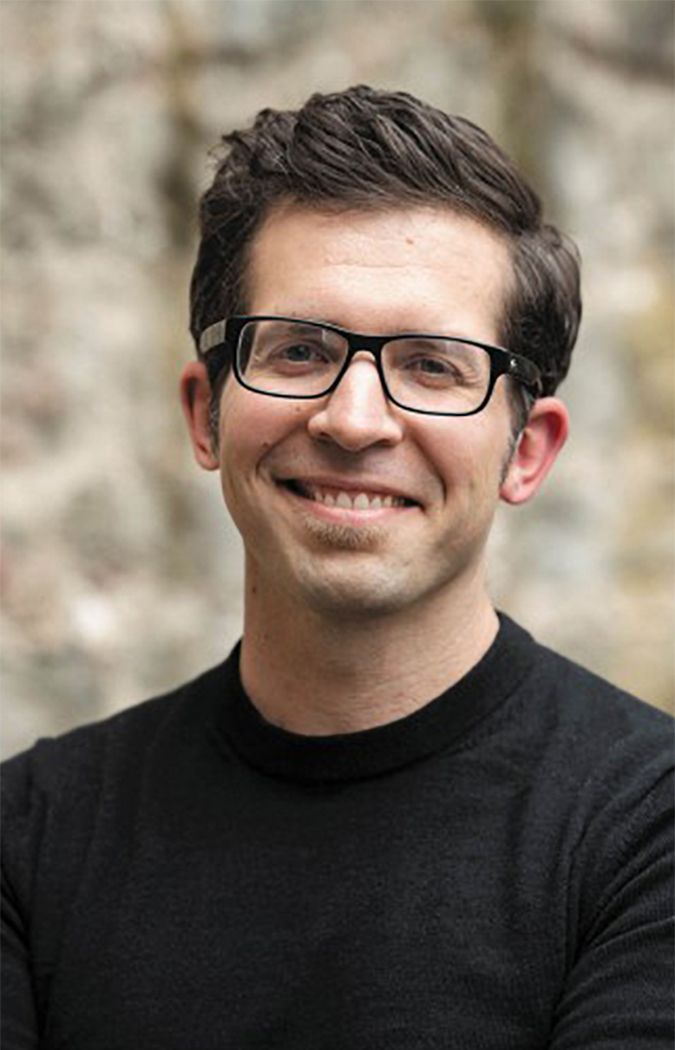 Andrew Graff, M.F.A.
Andrew Graff, M.F.A.
Visiting Assistant Professor of English
The Feel-Good Book Club – ENGL
Do the stories we tell ourselves matter? An emerging genre in contemporary fiction described as “Up-Lit” suggests they do. With eyes wide-open to the struggles and hardships in today’s world, these Up-Lit authors have decided to tell stories marked by compassion, hope, healing, empathy, joy, rest, and redemption. This course provides opportunity to read and discuss an edifying stack of contemporary, critically acclaimed novels, exploring the power of Up-Lit fiction for personal and cultural well-being. Read great novels. Be uplifted. Uplift others.
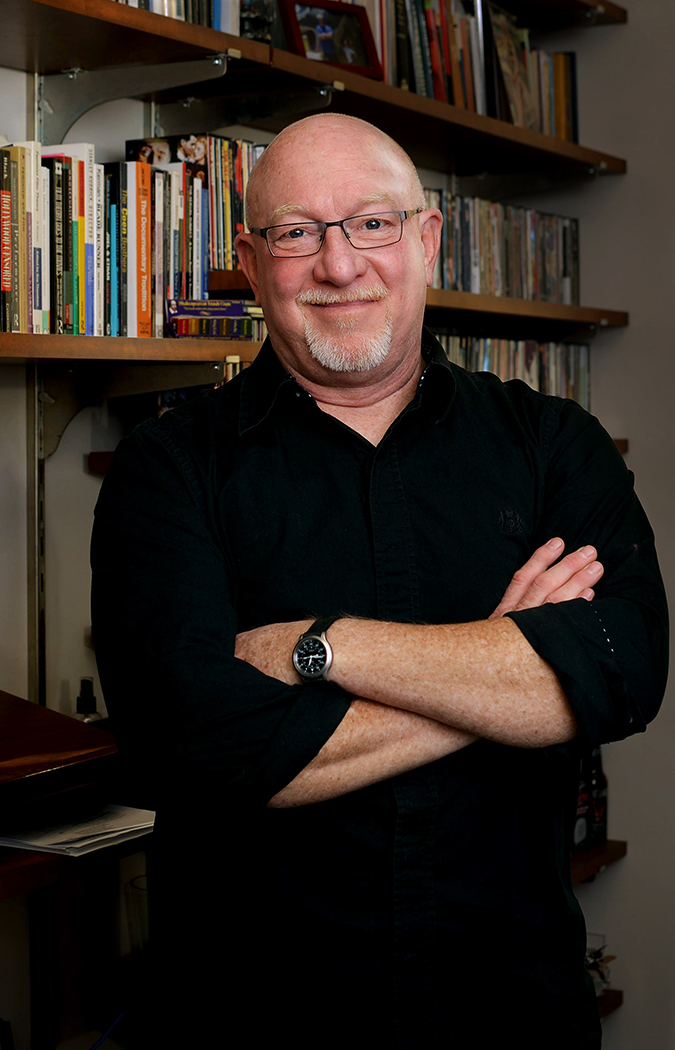 D. Scot Hinson, Ph.D.
D. Scot Hinson, Ph.D.
Associate Professor of English
Comedy and Laughter – ENGL
Mike Myers (Saturday Night Live, Wayne’s World) says, “Serious is what I do when I am waiting to be silly again.” Do you believe that human beings are inherently serious beings who are occasionally funny, or do you think we are serious only when we have to be and the rest of the time we are looking for the opportunity to laugh and be silly? What makes us laugh? What is laughter—an “extra linguistic bark,” as one scientist described it? Why is laughter contagious? What functions does it serve us? And why do we laugh when someone else gets hurt, or even when we get hurt? What evolutionary benefits does laughter afford us? And, finally, how are laughter and comedy related, beyond the obvious? Some believe that to explain the joke, kills the joke, but we won’t be explaining the joke so much as we will be looking at laughter and at comedy’s history, its social functions, and its ties to race, gender, and sexuality.
Neuroscience
Neuroscience through the Ages – NEUR
How do we understand the human brain? This complex organ has been the object of fascination and study from ancient Egyptian to modern times. Studying the brain is important for our understanding of how we function. It is also critical in the development of treatments for ailments that can negatively impact our brain function, and thus our day to day lives. What we know about the brain and how we know it is evolving every day. However, discovery is not a smooth process. In this course, we will take a historical look at the evolution of neuroscience. We will discuss how technological advancements can alter accepted dogma, and discuss how individual bias and preconceptions can affect data interpretation. Finally, we will also discuss different misconceptions about the brain and how they these misconceptions are perpetuated through pop culture and media.

